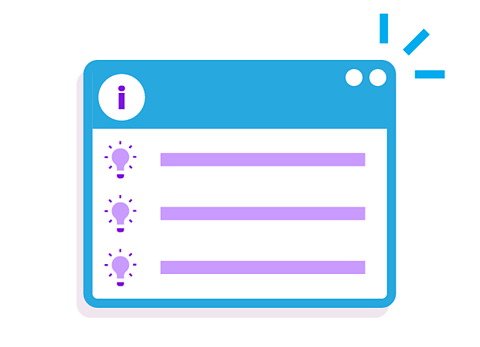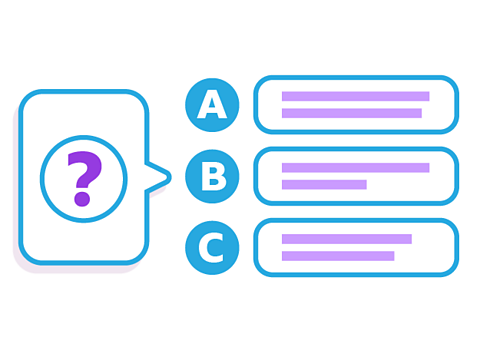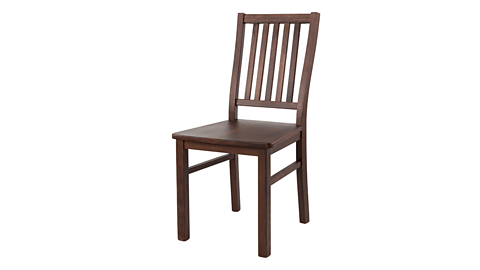Key points about definite and indefinite articles in French

The definite articleMeans 'the'. Definite articles change depending on whether the noun it goes with is masculine, feminine, singular or plural. âtheâ changes depending on gender and quantity in French.
Le is masculineAll nouns in French are either masculine or feminine. singular, la is feminineAll nouns in French are either masculine or feminine. singular, les is plural and ±ôâ comes before singular nouns that start with a vowel or h muet (silent h).
Use the definite article in French for expressions of liking, generalities, school subjects, languages, countries, body parts, time phrases and to turn an adjective into a noun.
The Indefinite articleMeans âaâ or âanâ. Indefinite articles change depending on whether the nouns they go with are masculine or feminine. âa/anâ changes in French depending on whether the noun is masculine (un) or feminine (une). Use des for plurals, meaning âsomeâ.
The indefinite article is used similarly to English, but is omitted with job titles, such as elle est prof - she is a teacher.
Higher Tier - use the definite article with dans (in) but not with en (in, eg a country).
Video: How to use articles in French
Watch the video to find out how to use articles in French.
Articles used with nouns must always match them for gender and plurality.
Nouns and articles or the basic building blocks of French.
In French, remember: every noun is either masculine or feminine.
Not only thatâŠthe noun's article always matches its gender. 'Le', 'la' mean 'the'. 'Un', 'une' mean 'a'. Le and un are masculine articles.
They can be used, for example, before the masculine noun: łÙĂ©±ôĂ©±èłóŽÇČÔ±đ
'La' and 'une' are feminine. So is the noun: 'montre'.
But if the noun starts with a vowel or a silent h, 'le' and 'la' become l'. For example: 'l'horloge.'
When the noun is plural, do as in English and add an s.
But then the article changes too!
La voiture.
Les voitures.
And when you come across a noun that ends with lots of vowels in the plural, just add an x.
Des bijoux.
The definite article in French
The definite article in English is the.
In French, the equivalent word changes depending on whether the noun is masculine, feminine or plural, or if it starts with a vowel or h muet (silent âhâ).
What are the French definite articles?
Le, la, ±ôâ and les all mean âtheâ. Knowing which one to use depends on the gender of the noun, whether it starts with a vowel or h muet (silent âhâ), and whether it is singular or plural.
| masculine | feminine | singular noun starting with a vowel/silent h | plural |
|---|---|---|---|
| le | la | l' | les |
When is the definite article needed in French?
In French, the definite article is often needed where it is not used in English.
- Expressions of liking, disliking and preferring:
ŽłâaŸ±me les fraises. â I like strawberries.
Je prĂ©fĂšre le chocolat. â I prefer chocolate.
- Expressing a generality:
Les chats dorment beaucoup. â Cats (in general) sleep a lot.
- With school subjects and languages:
JâĂ©tudie ±ôâhistoire. â I study history.
Je voudrais apprendre ±ôâanglais. â I would like to learn English.
- With countries:
łąâAlgĂ©rie est un pays chaud. â Algeria is a hot country.
- With parts of the body:
ŽłâaŸ± les yeux bleus. â I have blue eyes.
- In time phrases:
le weekend dernier â last weekend
le lundi â on Mondays/every Monday
- When turning an adjective into a noun:
seul (alone, only, lonely) â le seul (the only one)
anglais (English, adjective) â ±ôâAnglais (the English person)
Definite articles - Mini quiz

Fill in the blanks with the correct definite article â le, la, ±ôâ, les or no article.
Je vais aller Ă Paris ___ ČčČÔČÔĂ©±đ prochaine, alors je voudrais Ă©tudier ___ ŽÚ°ùČčČÔçČčŸ±Čő.
Je vais aller Ă Paris ±ôâČčČÔČÔĂ©±đ prochaine, alors je voudrais Ă©tudier le ŽÚ°ùČčČÔçČčŸ±Čő.
Iâm going to go to Paris next year so I would like to study French.
The definite article is needed with time phrases, such as ânext yearâ, and for languages. łąâ is used because ČčČÔČÔĂ©±đ (year) starts with a vowel.
łąâ is also used in front of âh muetâ (silent h).
When is the definite article omitted in French?
The definite article needs to be omitted in the following situations:
- After expressions of quantity such as beaucoup de (a lot of), plus de (more), trop de (too much), peu de (little, few) and assez de (enough). For example:
Il y a beaucoup dâenfants ici. â There are a lot of children here.
Nous avons trop de devoirs. â We have too much homework.
- After negative expressions such as ne ⊠pas de (none/not any) and ne ⊠jamais de (never any). For example:
On nâa pas de chien. â We donât have a dog.
Je nâai jamais dâargent. â I never have any money.
The indefinite article in French
The indefinite article in English is a/an.
In French, the equivalent word changes depending on whether the noun is masculine or feminine.
To talk about plural nouns in any context where you would usually use an indefinite article, use des (some).
What are the French indefinite articles?
The French indefinite articles are as follows:
| English | masculine | feminine | plural |
|---|---|---|---|
| a (or an), some | un | une | des |
When is the indefinite article needed in French?
The indefinite article is used in almost exactly the same way in French as it is in English.
For example:
ŽłâaŸ± un ŽÚ°ùĂš°ù±đ. â I have a brother.
Mes parents vont acheter une nouvelle voiture. â My parents are going to buy a new car.
On va manger des pommes. - Weâre going to eat some apples.
Indefinite articles - Mini quiz

Translate this sentence into French:
I would like to have a sister.
Je voudrais avoir une sĆur.
ł§Čճܰù (sister) is a feminine noun so une needs to be used to mean âaâ.
When is the indefinite article omitted in French?
No article is needed when talking about jobs, or if you are a member of a team. For example:
Je voudrais ĂȘtre mĂ©decin. â I would like to be a doctor.
Je suis membre dâune Ă©quipe de foot. â I am a member of a football team.
Quiz - Definite and indefinite articles in French
Practise what youâve learned about definite and indefinite articles with this quiz.
Higher Tier â Using or omitting articles with 'dans' and 'en'
In French, use the definite article with dans (in) but not with en (in, eg a country). For example:
Il y a une table dans la cuisine. â There is a table in the kitchen.
Je suis en France. â I am in France.
Using 'dans' and 'en' - Mini quiz

Translate this sentence into French:
My brother is in England.
Mon ŽÚ°ùĂš°ù±đ est en Angleterre.
The definite article is not used with en (in).
Higher Tier - Quiz - Definite and indefinite articles in French
Practise what youâve learned about definite and indefinite articles with this Higher Tier quiz.
Video: French genders and articles
Watch the video for further information on genders and articles in French.
How to use genders and articles in French
Every noun in French is either masculine or feminine. â
The word you use for a or the depends on whether itâs with a masculine or feminine noun.â
For a feminine noun une means a and la means the:
une banane, la banane. â
For a masculine noun un means a and le means _the_â:
un portable, le portable. â
And if you have more than one thing then the le or la become les: â
âles pommes. â
You do have to learn the genders of words. But there are some patterns which will help you.â
âla mĂšre - mother and le pĂšre - father. â
The gender of the word is the same as the gender of the person.â
Nearly all words borrowed from English like le week-end and ±ôâInternet are also masculine⊠â
Words ending in -ment like ±ôâappartement are masculine.â
Words ending in -sion like la télévision are all feminine.
Words ending in -ure - like voiture are also feminine: â
âla voiture.
It is important to know if something is le or la masculine or feminine âand with these tips you can make a start.â
Now youâve learned about definite and indefinite articles in French, why not explore how to use indefinite and negative adjectives in French?
More on Gender, nouns and articles
Find out more by working through a topic
- count4 of 4

- count1 of 4

- count2 of 4
